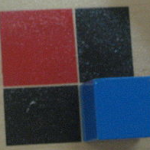Daily life, for all its basic routine, is always popping up surprises. The human brain is attracted to mystery; it is after all just a fancy problem solving machine. David Mitchell gets up on his soap box to give a wonderful screed about how having sophisticated references tucked into childrens’ programming is a good thing and there should be more of it. Kids are naturally curious. If they’re interested enough they’ll look it up, and, in the age of the internet search engine and smartphones, the barriers to looking anything up are negligible. So include more Greek references in your discussions because although inciting curiosity in the internet age is a bit like opening Pandora’s box, you’re much more likely to get better results.

It also ties a bit into Montessori Philosophy. Students start “playing” with artifacts like the binomial cube in kindergarden, where the goal is to convey mathematical concepts is a solid, sensorial way. They don’t get into binomial formula until years later in algebra, but their familiarity with the cube allows them to take the step into the abstraction of algebra on familiar, safer ground.
This discussion also highlights one of the major advantages of using websites and hypertext for educational materials. References can be embedded in the text with links to credible sources even further reducing the transaction costs of the student having to search around the web trying to look something up. There is an argument to be had, however, on if hyperlinking is too distracting and reduces our ability to focus, but perhaps we need to work on study habits and using invisible hyperlinks rather than not using technology altogether.
(I discovered David Michell’s Soap Box via Somewhat in the Air, who notes that, “Few of David Mitchell’s posts are child friendly but the “Passionate about Sofas” is terribly funny, too.”)